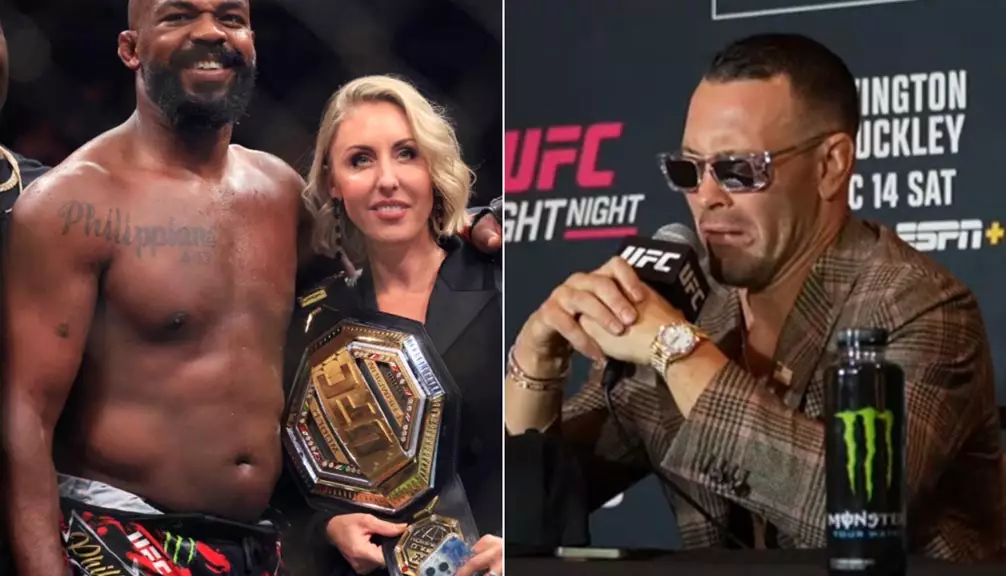Colby Covington, a polarizing figure in mixed martial arts (MMA), once again raised eyebrows with his brazen comments at a media day ahead of UFC on ESPN 63. Covington, known for his confrontational persona and incendiary remarks, showcased a penchant for controversy that has led him to be dubbed the “King of Cringe” in the world of combat sports. His infamous media day appearance indicated that not much has changed since his last venture into the spotlight, as he embarked on a tirade filled with provocations and largely unnecessary personal attacks, notably aimed at NBA superstar LeBron James.
Covington’s provocative rhetoric kicked off almost immediately, as he took aim at LeBron James, reigniting previous rivalries and accusations. His comments directed at James were not random; they were triggered by a resurfaced video that featured the NBA icon referencing Sean “Diddy” Combs during a now-controversial Instagram Live session. Covington leveraged this moment to throw jabs regarding James’s association with Combs, whose reputation has taken a significant hit due to serious legal troubles. Covington’s insinuation that James might be tied to such scandals reflects his habitual mixing of entertainment and sports to generate sensational headlines.
It is not uncommon for athletes to intertwine their personal lives with their professional narratives, and Covington is nothing if not intentional in his approach to publicity. By questioning James publicly, he aims to position himself as a figure of scrutiny and importance within the media landscape while promoting his upcoming fight. Yet, the approach results in a slew of uncomfortable cringe-worthy moments that, for many, overshadow his fighting credentials and skills.
The media session was not solely focused on James. Covington rambled on about several other fighters, displaying his characteristically brash manner. While it is routine for fighters to address their opponents in the lead-up to a fight, Covington took it further by making disparaging comments about various fighters, including Shavkat Rakhmonov and Khamzat Chimaev. Striking a balance between building intrigue for his match and disregarding competitive respect, Covington’s inflammatory rhetoric serves mostly to draw attention, regardless of the potential fallout in the MMA community.
Such antics can detract from the sporting aspect of the UFC, translating the competitive nature into a spectacle of personalities, rather than showcasing the athleticism and skill inherent in mixed martial arts. The focus on personal attacks dilutes the value of the fight itself, fostering a culture where discord and entertainment overshadow true athletic prowess.
In true Covington fashion, the media day took an unexpected turn when he diverted his attention to the recently concluded UFC 309, specifically concerning Jon Jones’s performance against Stipe Miocic. Rather than offer an analysis of the fight, Covington launched into a deeply personal and bizarre critique of Jones’s private life, targeting his character through unsubstantiated claims. Such tactics may stimulate sensational conversations, but they parallel a broader trend in which fighters’ personal narratives frequently eclipse the matches themselves.
The transition from discussing fight performance to disparaging someone’s physical preferences not only feels like an overreach but also serves to further entrench Covington’s brand in the domain of crass sensationalism. His remarks about women and weight illustrate a blatant disregard for professionalism, reducing MMA discourse to that of petty high school rivalry. This kind of behavior could alienate fans who appreciate the sport for its athletic integrity rather than for the over-the-top soap opera-like narratives.
As Covington prepares for his fight against Joaquin Buckley, the implications of his media antics will likely ripple through the MMA community. While it is true that Covington’s confrontational style generates attention—possibly garnering more engagement—a concerning trend arises from blurring lines between entertainment and respect in sports. Striking the balance between promoting oneself and maintaining the decorum expected in professional athletics remains crucial.
Colby Covington may reign as the “King of Cringe,” but one must wonder whether he realizes that his court might just be slowly drifting into irrelevance. While many enjoy his outlandishness as part of the spectacle, a significant number of fans yearn for the time when fighters were revered primarily for their skills, respect for their opponents, and contributions to the sport itself. As Covington steps into the octagon for his fight, one can only hope he can break free from the chains of his persona and deliver a performance that reinforces the sporting legacy of MMA, rather than just another layer to his increasingly convoluted narrative.

